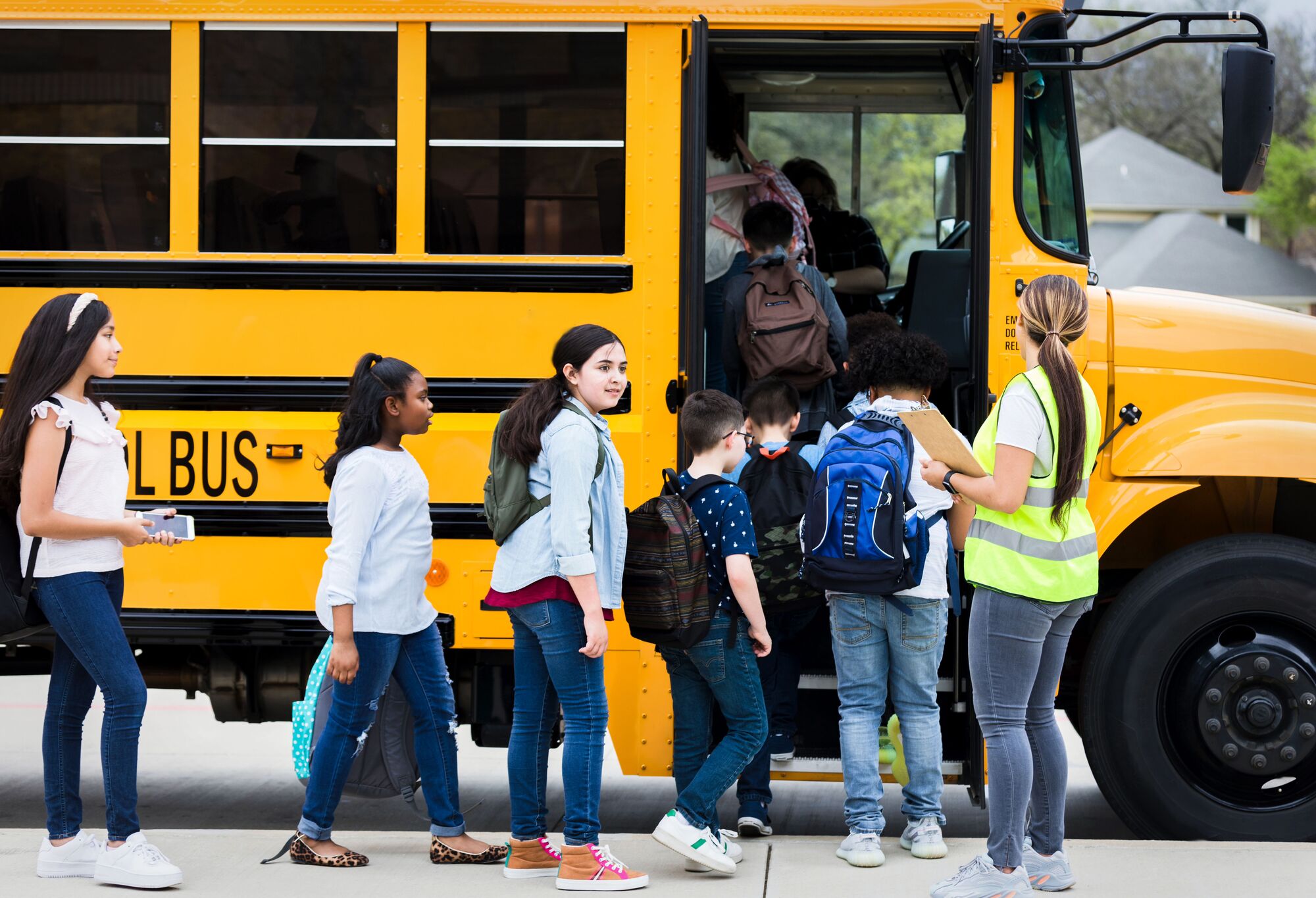More Washington Students Will Soon Get Clean Rides to School
A new policy combined with state funding will speed up Washington’s transition to all-electric, zero-emission school buses.
What’s not to like about electric school buses? They’re clean, quiet and with no exhaust and no pollution, they’re better for our children’s health and for the environment.
Thanks to clean air champions in the Washington Legislature, including Rep. Tana Senn who was the primary sponsor of House Bill 1368, and Washington Gov. Jay Inslee who signed the zero-emissions school bus bill into law at the International Brotherhood of Electrical Workers Local 46 in Kent, Wash., more Washington students will soon be riding safely to school in zero-emission school buses.
With diesel exhaust linked to cancer and higher levels of asthma and other respiratory illnesses, it makes sense Washington would join in a national push transitioning student transportation from old-school dirty, diesel buses to pollution-free electric ones. Kids deserve a clean ride to school – and research also shows cutting tailpipe pollution also helps them do better in school.
What’s more, funding is available both nationally and in Washington to make the switch. In addition to significant federal funding provided from the U.S. Environmental Protection Agency’s Clean School Bus Program and the Inflation Reduction Act, the Washington Legislature will leverage that federal funding by allocating nearly $40 million, partially funded from Climate Commitment Act revenue, to purchase more electric school buses.
This is a wise investment, both economically and for the health of our children and Washington’s communities. Upfront costs for electric school buses can seem daunting, but as costs decline and the market matures, affordability is increasing and so is the infrastructure supporting electric vehicles. Once purchased, electric school buses are cheaper to operate and maintain.
Everyone knows diesel is dirty. Studies have found that air pollution inside a diesel bus can be 4-12 times worse than outside. That’s a disturbing amount of pollution seeping into buses where kids breathe it in. Because children’s lungs aren’t fully developed and they tend to be more active than adults, poor air quality can have an outsized impact on our students.
Using CCA funds in this way makes good sense for our children’s health – and everyone. The leveraging of multiple sources of funding speeds up the transition to clean rides for kids and streamlines the process for schools seeking to transition fleets to clean energy. Agency guidance and support is embedded into the policy.
Importantly, for equity reasons, the policy prioritizes electric school bus grants to school districts that serve overburdened communities – alleviating the economic and social disparities that impact students’ learning and living environment. Replacing diesel buses with clean, electric buses is a meaningful step toward addressing decades of policy that has intentionally concentrated transportation pollution in low-income communities and communities of color.
This new law will help our state’s public schools transition to clean electric school buses, while making the switch as equitable and simple as possible.
The World Resources Institute maintains an electric school bus data dashboard. Keep an eye on that dashboard and when these clean new buses start being ordered or roll in our school district parking lots, we will all be able to see Washington leaping ahead to become one of the leaders in this national movement. The wheels on these electric schools are rolling, and Washington was smart to jump aboard.
Established in 1987, Earthjustice's Northwest Regional Office has been at the forefront of many of the most significant legal decisions safeguarding the Pacific Northwest’s imperiled species, ancient forests, and waterways.
Zoe Woodcraft
Public Affairs and Communications Officer, Earthjustice
zwoodcraft@earthjustice.org
